How To Judge a Sandford Award Winner
Sandford St Martin Award shortlisters and judges are chosen for their wide experience of both religion and the media. They include experienced producers, programme-makers, directors, journalists and critics from a variety of faith backgrounds. In 2016 the comedian and Radio TV critic, Penelope Solomon, was one of the those who was given the daunting task of shortlisting our radio entries. Over the past few years, radio has been the Awards most competitive category. This year more than 90 radio programmes were in the running for prizes. In her blog, Penelope reveals more about the process and some of the highlights for her.
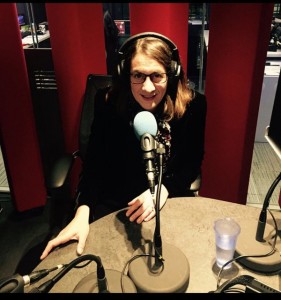
I WAS A SANFORD ST MARTIN AWARD SHORTLISTER
As a television critic, I like to select and compare programmes across different genres covering a range of topics. This helps to keep the viewing varied and interesting both for me and, hopefully, for my audience when I come to discuss the programmes live on air. For example I might watch a stand-up show like ‘Stewart Lee’s Comedy Vehicle’ and then contrast this with a documentary programme such as ‘Bedlam’ about mental illness in a psychiatric hospital in South London. (Some might argue that these two programmes are very closely linked, but that’s a subject for another blog!)
When I was invited to be on the shortlisting panel for the Sandford St Martin Awards, I was slightly daunted at first by the fact that I would be required to listen to a fair share of the almost eighty different radio programmes entered in the category and united by a common theme: religion, ethics and spirituality. Whilst I am interested in programmes which have a religious content, I thought the process might be a bit repetitive and dull. In truth, I didn’t really know what to expect. How delightfully surprised I was by the sheer range on offer from drama to documentary to live performances and church services. There was even a small selection of live Nativities!
Such was the diversity of voices, that contributions ranged from young Muslim women from Birmingham talking about wearing the hijab and fashion, to Jewish people ‘making Aliyah’ (i.e. emigrating to live in Israel) to an analysis of the Archbishop of Canterbury’s turbulent childhood. Questions around identity were a common theme in many programmes with different religious practices presented and issues affecting people from all walks of life, some who had faith and some with no faith. Some of the stories told were so gripping and evocative they brought tears to the eyes.
When a programme really works you can’t or indeed don’t want to stop listening. Strong resonant voices draw you into a carefully crafted story and somehow a connection is made which makes you want to keep on listening. During my listening I’d often find myself drawn in by programmes about topics I knew nothing about. When these stories were told well – through engaging contributors, a fresh approach and seamless editing – the result was extremely effective. I gained knowledge about different cultures and different ways of life and felt enriched and broadened by this new learning experience.
Music was a powerful and effective device used creatively in many of the programmes. Sometimes it was woven into the piece to break up or punctuate the narrative. At other times it was used to enhance meaning and emphasis within a story, to build up suspense and increase the tension. Stirring soundscapes were used to accompany chilling and harrowing stories. Occasionally music was over-used and became intrusive and distracted from the rest of the content, but this was rare. In some programmes the music and songs were so bold and stirring that I wanted to go out and buy the CD – if there had been one!) And then, there were other programmes which did not have any accompanying sound-track at all. It was interesting to note that some of these were equally as effective if not even more effective in engaging the listener. In these programmes it was the solitary voice and the spoken word which resonated and created an impact.
Several of the programmes explored current issues and contemporary themes such as same-sex marriages, religious fundamentalism, the radicalisation of young Muslims, freedom of speech or interfaith marriages and the fusion of eclectic family traditions. And the more I listened to these, the more I was surprised by how they stimulated my desire to discover more about other cultures, communities and religions and by how fascinating this learning was. I came away from the experience with a sense that I had touched upon some of the key issues that affect the lives of others and how important it is that this knowledge and information is shared.
In the end, my fellow shortlisters and I ended up with a long-list of fourteen excellent programmes which we then had to narrow down too a short-list of eight. We all had our favourites but after much analysis and discussion managed to agree in the end.
What strikes me on reflection is that there were hardly any comedy entries. Why is that? Is religion not funny? Are writers, producers or commissioners afraid to make jokes about Faith? Perhaps this is something for programme-makers and potential entrants to think about for next year.
You can read a full list of the programmes shortlisted for a 2016 Sandford St Martin Radio Award here.
Penelope is a Comedian and TV Critic for BBC Radio 4 (‘World Tonight’, ‘Today Programme’) and BBC Radio London.
As a performer credits include ‘Goodnight Sweetheart’ (BBC), ‘Fist of Fun’ (BBC), Sony Nominated ‘King of the Road’ (BBC Radio 2) and ‘Redeeming Brian’ by legendary sitcom writer David Nobbs (BBC Radio 2). She created and co-wrote ‘Tower of Bagel’ (Soho Theatre, Royal Festival Hall). Penelope has also performed live at: Theatre Royal Winchester, Royal Exchange Theatre, Manchester, Salisbury Playhouse, Bristol Old Vic and The Hackney Empire.
Penelope will preview her new live solo show at LEICESTER SQUARE THEATRE
on Saturday 16 July at 20.30
before heading to THE STAND COMEDY CLUB part of the EDINBURGH FRINGE 2016
You can find out more about Penelope and her work on her website: www.penelopesolomon.com
or by following her on Twitter: @aHackneyMum


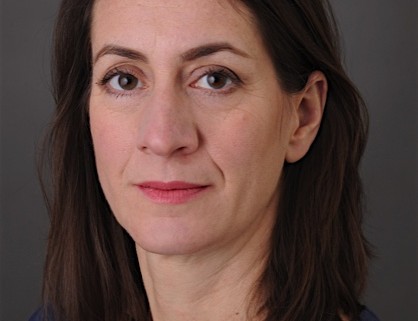

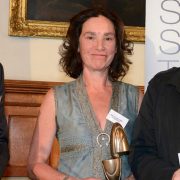
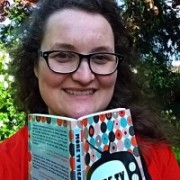

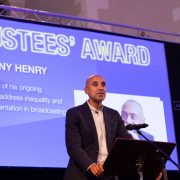
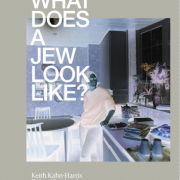
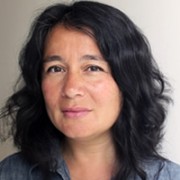
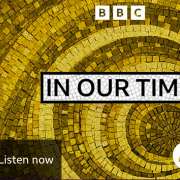


Leave a Reply
Want to join the discussion?Feel free to contribute!